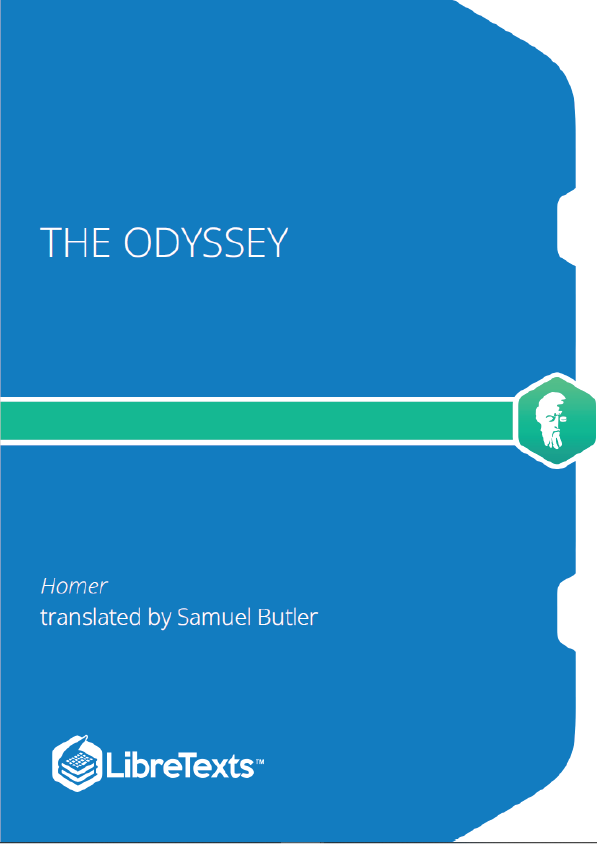The Odyssey is one of two major ancient Greek epic poems attributed to Homer. It is, in part, a sequel to the Iliad, the other Homeric epic. The Odyssey is a fundamental work in the modern Western canon, being the oldest extant piece of Western literature, second to the Iliad. Scholars believe the Odyssey was composed near the end of the 8th century BC, somewhere in Ionia, the Greek coastal region of Anatolia.
Butler’s Translation of the “Odyssey” appeared originally in 1900, and The Authoress of the Odyssey in 1897. In the preface to the new edition of “The Authoress”, which is published simultaneously with this new edition of the Translation, I have given some account of the genesis of the two books. The size of the original page has been reduced so as to make both books uniform with Butler’s other works; and, fortunately, it has been possible, by using a smaller type, to get the same number of words into each page, so that the references remain good, and, with the exception of a few minor alterations and rearrangements now to be enumerated so far as they affect the Translation, the new editions are faithful reprints of the original editions, with misprints and obvious errors corrected—no attempt having been made to edit them or to bring them up to date.
Tell me, O Muse, of that ingenious hero who travelled far and wide after he had sacked the famous town of Troy. Many cities did he visit, and many were the nations with whose manners and customs he was acquainted; moreover he suffered much by sea while trying to save his own life and bring his men safely home; but do what he might he could not save his men, for they perished through their own sheer folly in eating the cattle of the Sun-god Hyperion; so the god prevented them from ever reaching home. Tell me, too, about all these things, oh daughter of Jove, from whatsoever source you may know them.
So now all who escaped death in battle or by shipwreck had got safely home except Ulysses, and he, though he was longing to return to his wife and country, was detained by the goddess Calypso, who had got him into a large cave and wanted to marry him. But as years went by, there came a time when the gods settled that he should go back to Ithaca; even then, however, when he was among his own people, his troubles were not yet over; nevertheless all the gods had now begun to pity him except Neptune, who still persecuted him without ceasing and would not let him get home.



